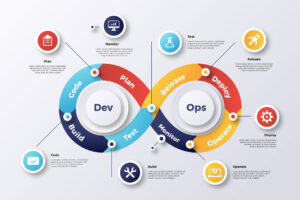Debunking the Notion: Why WordPress Cannot Be Considered a Framework

WordPress, undoubtedly one of the most popular content management systems (CMS) globally, has played a significant role in shaping the digital landscape. With its user-friendly interface and an extensive library of plugins and themes, it has enabled countless individuals and businesses to establish an online presence. However, there’s an ongoing debate about whether WordPress can truly be considered a framework. While WordPress undeniably possesses certain framework-like qualities, it falls short in several key areas that set it apart from traditional web development frameworks. In this article, we’ll delve into the reasons why WordPress cannot be accurately classified as a framework.
- Prevalence of Templating System: A core characteristic of a web development framework is the separation of concerns between the data, presentation, and logic layers. Frameworks like Laravel, Ruby on Rails, or Django excel in this aspect by providing a robust foundation for building applications that adhere to the Model-View-Controller (MVC) pattern. In contrast, WordPress leans heavily towards the templating system, where the lines between data, presentation, and logic can easily blur. While plugins and themes offer some level of separation, they often intermingle these layers, making it challenging to maintain clean code architecture.
- Limited Control Over Database Schema: True web frameworks grant developers control over database schema and migrations. They enable precise database manipulation through migration scripts, ensuring that database changes are versioned and reversible. In WordPress, however, database schema changes are often executed directly, bypassing the controlled migration process. This approach can lead to inconsistencies and difficulties in managing changes across different environments.
- Emphasis on Extensibility over Convention: Frameworks thrive on enforcing coding conventions and standard practices. These conventions streamline collaboration among developers and facilitate code maintenance. WordPress, on the other hand, prioritizes extensibility over convention. While this flexibility allows for extensive customization, it can result in inconsistent codebases with varying coding styles and practices, making long-term maintenance a daunting task.
- Inversion of Control and Dependency Injection: Modern web frameworks heavily emphasize the principles of inversion of control (IoC) and dependency injection (DI). These principles promote modular, loosely coupled code that is easier to test and maintain. WordPress lacks a built-in IoC container and comprehensive DI mechanism, making it challenging to manage dependencies effectively. While plugins can be used to achieve similar results, they often lack the structural robustness found in dedicated frameworks.
- Built for Content Management, Not Application Development: WordPress was originally designed as a blogging platform, evolving into a content management system over time. While it’s undoubtedly capable of powering complex websites and applications, its core architecture remains rooted in content management. Frameworks, on the other hand, are specifically engineered to address the complexities of application development, providing tools and structures tailored to this purpose.
- Minimal Focus on API-First Design: In today’s digital landscape, API-first design is crucial for building scalable and versatile applications that can seamlessly interact with various platforms and devices. Frameworks like Laravel and Express.js prioritize API development alongside traditional web application features. While WordPress does offer a REST API, its architecture is still centered around delivering web pages, not APIs, leading to potential limitations in creating robust API-driven applications.
Conclusion
While WordPress undoubtedly boasts a user-friendly interface and a thriving ecosystem of themes and plugins, it falls short in several key aspects that define a traditional web development framework. The separation of concerns, database schema control, coding conventions, dependency management, and application-centric design are all areas where WordPress diverges from framework paradigms. It’s essential to recognize that WordPress serves a unique purpose as a content management system, but its architectural choices and historical development trajectory set it apart from the concept of a framework. Therefore, despite its popularity and usefulness, it cannot be accurately classified as a true web development framework.
Business Listings Related to the Article: Debunking the Notion: Why WordPress Cannot Be Considered a Framework
Vision India Services
Vision India Services Pvt Ltd remains a forefront trailblazer in furnishing staffing and Human Resources Management solutions that aptly address the ever-shifting and distinct requisites of businesses spanning the globe.
- Category
- Business Services
More Articles Like: Debunking the Notion: Why WordPress Cannot Be Considered a Framework
The History of DevOps: From Origins to Present Day
Introduction DevOps, a blend of “development” and “operations,” has become a cornerstone of modern software engineering. By fostering collaboration between software developers and IT operations, DevOps enables organizations to deliver high-quality software faster and more reliably. However, the principles and practices that define DevOps today have evolved over several decades. This article explores the history […]
Understanding the Difference Between Headless and Decoupled CMS
In the evolving landscape of content management systems (CMS), two terms often come up: “headless” and “decoupled.” While they may sound similar and share some common characteristics, they represent distinct approaches to managing and delivering content. This article will elucidate the differences between headless and decoupled CMS architectures, helping you understand which might be more […]
Exploring Sylius: An Overview of the Open Source eCommerce Framework
In the dynamic landscape of eCommerce, businesses constantly seek robust and flexible solutions to manage their online stores effectively. One such solution gaining prominence is Sylius—an open-source eCommerce framework. Sylius offers a modern and customizable platform for building online shops, providing developers and businesses with the tools they need to create tailored eCommerce experiences. Understanding […]






